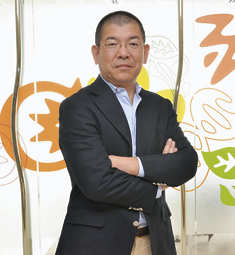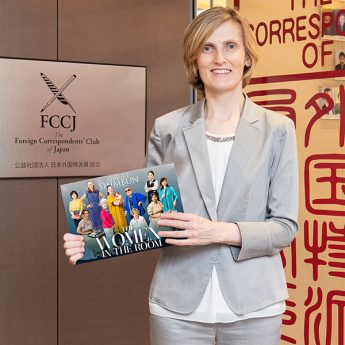
And disregard gender, nationality, race, creed, disability and sexual preference
Unilever aims to double the size of its business while reducing its environmental footprint and increasing its positive impact.
To deliver our business goals, it is vital that we employ people with the right talent, skills and creativity. A gender-balanced and engaged workforce that reflects our consumer base is a critical element of our long-term growth strategy.
We embrace diversity in our workforce, which means we give full and fair consideration to all applicants, while continuing the development of all employees regardless of gender, nationality, race, creed, disability or sexual preference.
Our diversity and inclusion strategy allows employees to develop to their full potential so they are better and faster when it comes to understanding, and responding to, our consumers’ needs. Moreover, they are able to foster more diverse thinking across all levels and functions.
Diversity is a high priority for our business—our global diversity board comprises senior executives from across the business and is chaired by Paul Polman, our chief executive officer.
As a part of our commitment to diversity, by 2015 we aim to have raised the ratio of female managers in our firm globally to 50%—and to 40% in Japan.
In Japan, we have been creating an inclusive and flexible working environment, beyond local legal requirements. Since 1995, for example, our employees have been able to take child-care leave for up to two years.
In addition, we enhanced personnel rules and programmes, making it easier to devise longer-term career plans—as well as life events, such as marriage, the work-related relocation of a spouse, having children, and caring for elderly family members.
Flexible and stay-at-home work systems are widely used, regardless of gender, by employees to achieve a good work–life balance.
As a result, almost all female employees return to work following maternity leave. As of the end of March 2013, 31% of Unilever Japan managers were females, far exceeding the 7% average in Japan.
Unilever’s approach and achievements in gender diversity have received various external recognitions, including the European Diversity Awards’ Company of the Year Award (Global, 2012) and the Toyo Keizai Diversity Management Award (Japan, 2012).
However, we believe that this is not good enough.
We aim to create an environment in which we are able to improve our gender balance at all levels.
Prior to International Women’s Day (8 March), we ran an internal campaign that asked employees to share their ideas on how Unilever might achieve a better gender balance. This campaign clearly has touched the hearts and minds of our employees; over 2,000 employees from more than 30 countries shared their views.
Respondents from Japan gave an abundance of positive feedback concerning the firm’s policies, fair recruitment and the appointment of high-performance managers regardless of gender, and organisational culture embracing diversity.
We also found that working mothers tend to be kept busy maintaining their work standards, while meeting the social expectations of a good wife and mother.
At our Town Hall Meeting—held on International Women’s Day—Ray Bremner OBE, president and CEO of Unilever Japan Customer Marketing K.K., pointed out that some of the barriers employees encounter are in their minds.
“Suggestions are to keep driving performance culture that measures output not by hours spent at the desk. You are measured by the output. Take advantage of our policies and be brave [enough] to control your work–life balance”, said Bremner.
Hisae Morii, marketing director of Unilever Japan, leads the highly competitive hair care business here while raising two children. She believes the key to a good work–life balance is the ability to switch modes.
“When I am in the office, I am fully in work mode. And when I get home, I switch completely to mum mode. I do not accept late-night calls and teleconferences. The important thing is to be tough about yourself—prioritise, and be brave enough to say “no” even to senior managers”, Morii explained.
Based on employee feedback, we plan to hold a diversity and inclusion workshop in May for senior leaders and, in the same month, to invite female employees to the Women’s International Networking conference in Tokyo. In addition, we will promote agile working to a wider group of people, work harder to reduce the complexities, and promote effective decision-making.
For Unilever, diversity is not only an ethical right or moral obligation; it is the key to driving the change to consistent, sustainable growth.





